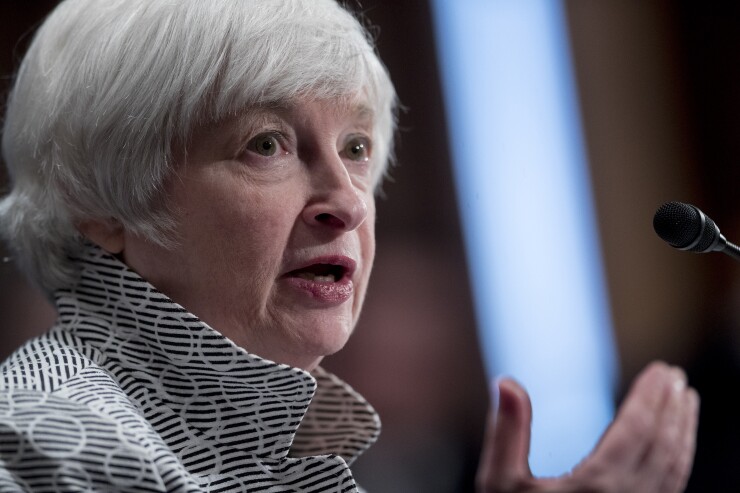Former Federal Reserve Chair Janet Yellen signaled it may be harder than U.S. trade negotiators think to prevent China from manipulating its currency.
That’s because some of the tools central bankers use to stabilize their economies also end up weakening their exchange rates. As a result, it may be difficult for negotiators to define what is currency manipulation as opposed to benign monetary policy.

Still, people familiar with U.S.-China trade talks said Americans are asking Beijing to refrain from actions that would weaken the yuan and offset U.S. duties on Chinese imports. Those discussions, which are designed to end a trade war between the world’s two largest economies, continue this week ahead of a March 1 deadline to strike an agreement.
According to Yellen, “it’s really difficult and treacherous to define” when a country is gaming its currency to gain trade advantages. She was speaking on a Brookings Institution podcast Tuesday on currencies and trade, and wasn’t commenting specifically on the current negotiations between the U.S. and China.
She noted that the U.S. itself has faced accusations of starting a “currency war,” especially when it engaged in massive asset purchases following the Great Recession. The policy, known as quantitative easing, was designed to lower long-term interest rates, though it caused the dollar to depreciate against emerging-market currencies as well.
“Monetary policy does have a systematic effect on a country’s exchange rate and nevertheless I think that it’s widely agreed that it should be available to be used for domestic purposes,” Yellen said. “So we would want to be careful not to define domestic policy tools as currency manipulation.”





